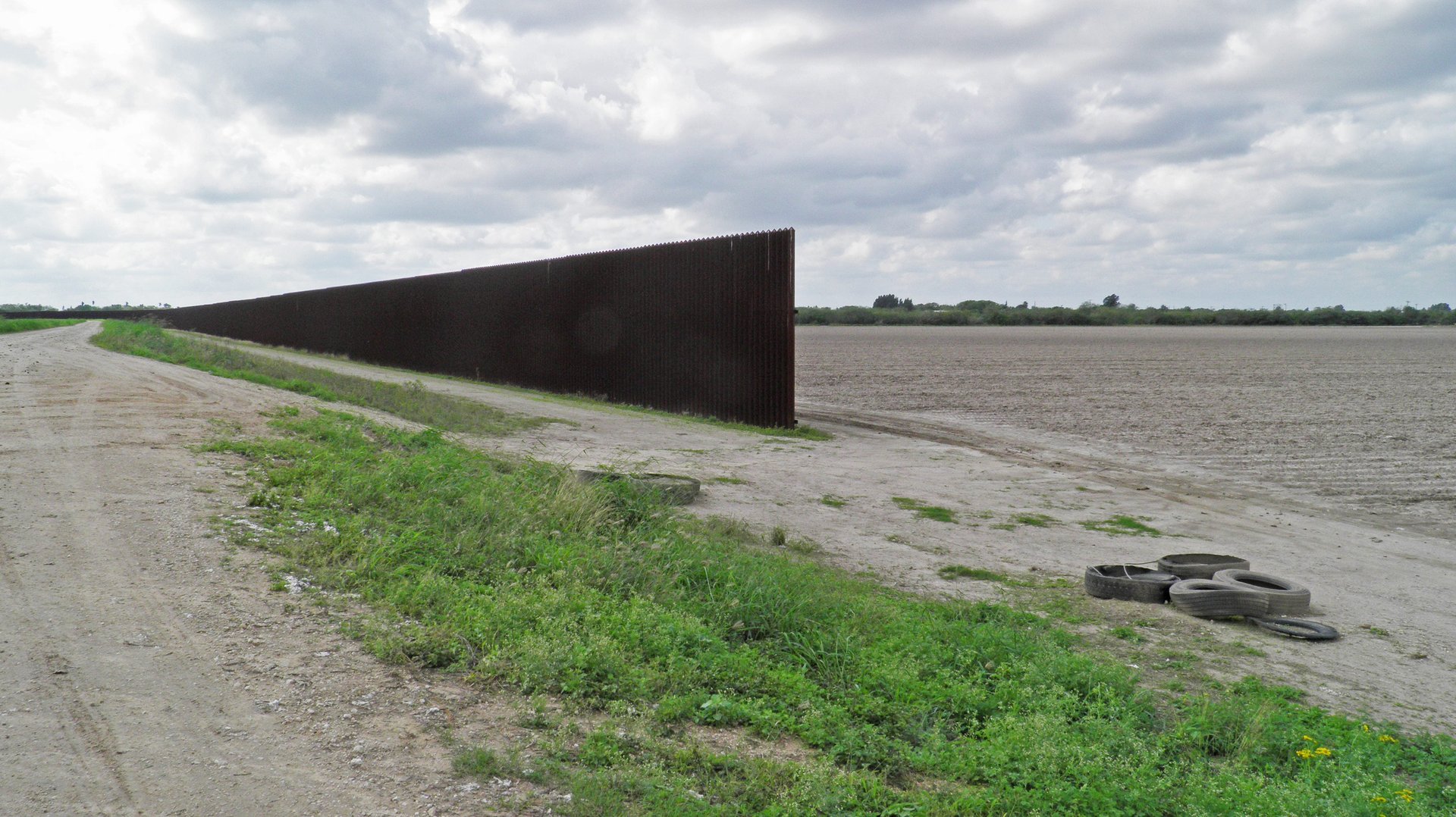The Pentagon is preparing to spend $8 billion on Trump’s wall
Donald Trump’s February 15 emergency declaration to siphon about $6.5 billion from military, drug enforcement, and other budgets so he can build his long-promised wall along the Mexican border is still stuck in the courts. But that isn’t stopping the Army Corps of Engineers, which handles most of the contracting duties for border wall construction, from getting ready to spend it anyway. In a pre-solicitation notice issued April 19, the Army Corps says it is seeking companies who want to pre-qualify to bid on “horizontal construction projects in support of the Border Infrastructure Program along the US-Mexico border” with a total value of up to $8 billion.


Donald Trump’s February 15 emergency declaration to siphon about $6.5 billion from military, drug enforcement, and other budgets so he can build his long-promised wall along the Mexican border is still stuck in the courts.
The government is “gauging future capacity within the contractor community,” Army Corps spokesman for border infrastructure Bobby Petty tells Quartz, explaining that projects anticipated to be advertised to the PQSL, or pre-qualified source list, are in various stages of planning.
A date has not been finalized for the projects, but funding is expected to come from “various” sources at the Departments of Homeland Security and Defense, Petty says.
Border…everything
The projects will include a “mix of border fence, border wall, border patrol roads, border access roads, border lights, border gates (for access to border monuments, for maintenance, and for Border Patrol operational use), border drainage improvements, levee walls, and other miscellaneous improvements, repairs, and alterations,” according to the contracting notice. The contracts could take 18 months or longer to be assigned, the notice says.
The $8 billion figure likely refers to the $6.5 in emergency declaration funding Trump demanded in February, most of it from military construction and anti-drug programs, plus $1.4 billion that Congress allocated Trump for “pedestrian fencing” in the Rio Grande Valley after the record-long government shutdown.
Creating a “pre-qualified” list of interested bidders before big projects is “typical contracting,” Jennifer Schaus, a consultant who works with government contractors, tells Quartz. Federal agencies often set up a “vendor shortlist” before they’re officially allocated a budget for a project, she explains.
The vendors that the Army Corps puts on that list aren’t guaranteed anything, Schaus notes, but pre-qualification makes “the buying process easier and more efficient.” The firms that pre-qualify need to meet technical requirements, prove they’ve handled similar projects in the past, and are likely to negotiate prices ahead of time.
In this instance, the Army Corps requires companies to be properly insured (up to $5 billion) and be capable of executing at least three $500 million construction contracts at the same time.
Seven vendors have so far registered their interest in bidding on the border project, including Gibraltar Materials, a Texas manufacturer of vehicle barriers, and Sedona Enterprises, an American Indian-owned contractor in New Mexico.
Trump’s fight for border money
Earlier this month, the Democrat-controlled House sued the Trump administration in federal court over the president’s emergency declaration, saying that he “violated Congress’s constitutional authority over appropriations by diverting federal funds from other sources to construct a wall.” The House lawsuit adds to a similar suit brought by 16 states arguing that Trump “used the pretext of a manufactured ‘crisis’ of unlawful immigration to declare a national emergency,” and that his plan to redirect federal funds to build a border wall amounts to an “unlawful scheme,” according to the complaint, a copy of which was obtained by Politico.
The House and Senate voted down Trump’s emergency declaration in March, but he vetoed that bill. Overriding a presidential veto requires a two-thirds majority vote in the House as well as the Senate; neither is likely.
The House Armed Services Committee, which has oversight responsibility for the Pentagon’s $700 billion budget, has also threatened to pass a law banning Defense officials from re-allocating money they’re allotted by Congress, if they move military funds to wall-building.
New construction will reportedly begin next month on 46 miles of border fencing in New Mexico’s Doña Ana and Luna counties, even though the lawsuits are still pending. The new barriers will be 18 to 30 feet tall, and are intended to replace existing, shorter vehicle barriers.
The New Mexico contract, which is worth $789 million, was awarded by the Army Corps to SLSCO Ltd of Galveston, Texas. The small firm owned by three brothers was earlier awarded about $300 million in border contracts in 2017 and 2018.